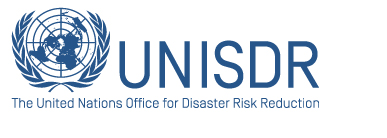Disaster preparedness is a priority in this region for the European Commission. Since 1994, ECHO has allocated over €40 million to disaster preparedness activities in the Caribbean (including Haiti), an amount that has funded more than 104 projects. ECHO´s Disaster Preparedness programme is called DIPECHO and it shows that simple and relatively cheap preparedness measures save lives and are an efficient way of reducing damages. The DIPECHO programme works with the communities who live in areas at risk and those actors in charge of the emergency response, helping them identify and reduce their risks and improving their ability to respond to disasters.
“DIPECHO projects help communities at risk to anticipate, face, adapt and recover quickly from disasters. The fact that communities strengthen their capacities and modify their attitudes towards disasters, can save lives,” confirms Jocelyn Lance, ECHO Caribbean head of office. “For a disaster-prone region such as the Caribbean, it is imperative that we continue working to increase the resilience of the population to withstand natural phenomena and minimize their often terrible consequences in terms of lives and losses,” he added.
With a total of €8.5 million allocated for the interventions in the region, the 2013-2014 DIPECHO Action Plan for the Caribbean supports 14 projects of disaster risk reduction in more than 12 countries (Haiti, Dominican Republic, Cuba, Jamaica, Saint Vincent & Grenadines, Dominica, Grenada, Saint Lucia, Suriname, Guyana, Barbados and Trinidad and Tobago). The Action Plan for the Caribbean aims to establish greater collaboration and coordination between partners, allowing programming of common outcomes and the harmonization of practices. Furthermore, it focuses on improving communication and dissemination of DRR key contributions in the region, by capturing evidence of success on how DIPECHO projects have allowed the most at risk communities to better prepare.
The event aims to present and share achievements and experiences of the 2013-2014 DIPECHO Action Plan for the Caribbean, as well as to identify challenges and to support the DRR strategies in the countries of the region. It is organized by the Humanitarian Aid and Civil Protection Department of the European Commission (ECHO) and the UN Office for Disaster Risk Reduction (UNISDR) with the support of DIPECHO partners.
Background
The Caribbean region is acknowledged as being among the most prone to a range of natural hazards. Some of them, such as hurricanes, landslides, floods are annual occurrences affecting different states with the consequent damage and setbacks for human development. Although much has been done, disaster risk continues to increase in parallel to a growing trend in the urbanization in the Caribbean which points to 60 to 79% of the population in urban areas (2011) that contributes to increasing the vulnerability in the region. Given high concentration of population, critical facilities, services and assets in hazard prone locations, coupled with the challenges associated with climate change, it is imperative to increase the resilience of Caribbean cities and communities.
Contacts:
Jocelyn Lance
Head of ECHO Office for the Caribbean
European Commission – Humanitarian Aid and Civil Protection Department (ECHO)
Santo Domingo - Dominican Republic
Tel: + 1 809 472-1615 jocelyn.lance@echofield.eu
Jodi Brown-Lindo
Press and Information Officer
EU Delegation to Jamaica, Belize, the Bahamas, Turks and Caicos Islands and Cayman Islands
Tel.+ 1 876 924 63 33 Jodi.BROWN-LINDO@eeas.europa.eu
Isabel Coello
Regional Information Officer for Latin America and the Caribbean
European Commission – Humanitarian Aid and Civil Protection Department (ECHO)
Tel: +505 888 39079 (roaming) isabel.coello@echofield.eu
More information about humanitarian aid from the European Commission: http://ec.europa.eu/echo
Caribbean webpage: http://ec.europa.eu/echo/aid/caribbean_pacific/caribbean_en.htm
In Facebook: http://www.facebook.com/ec.humanitarian.aid
In Twitter: @ECHO_LatAm @eu_echo




